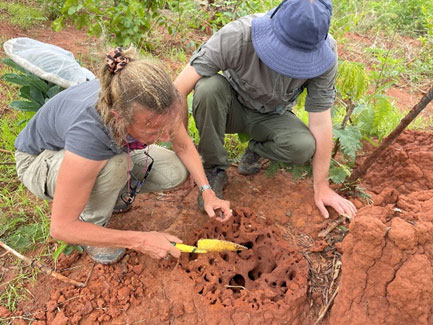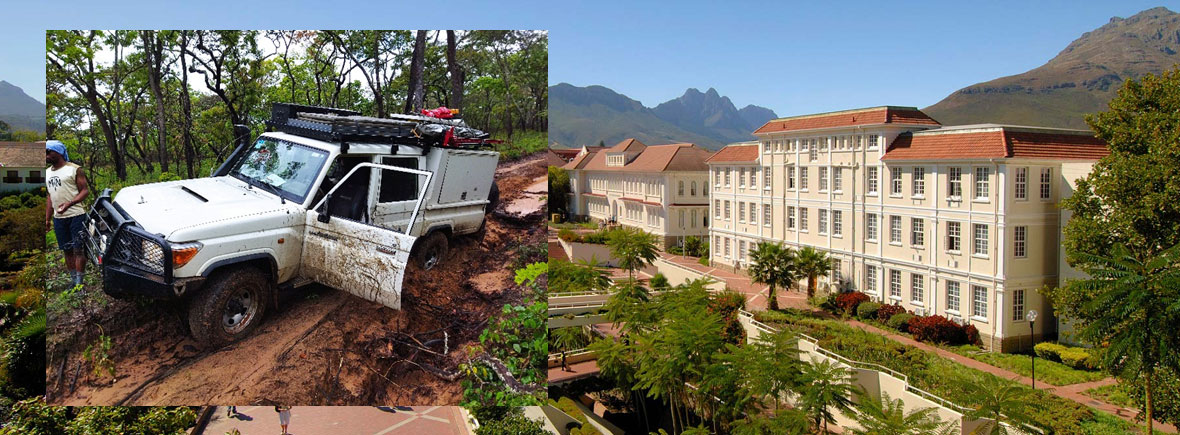Dr Barbara van Asch (Genetics Department) was invited by the National Geographic Okavango Wilderness Project (NGOWP) to participate in an expedition to the Cuanavale source lake, Angola, from 1 to 14 November 2022. The NGOWP has been gathering field data on water and land from the sources in the highlands of Angola to the delta in Botswana to protect the greater Okavango River Basin. The project started in 2015 and currently involves a vast interdisciplinary network of African and international scientists. Dr Barbara van Asch and other experts in the fields of entomology and botany were led by Robert Taylor, research coordinator, and assisted by local staff in a survey of insects and plants in riverine, miombo and forest habitats.
According to Dr Barbara van Asch, “The Okavango River Basin is one of the most biodiverse regions on the continent, and I dare say one of its last wild places. I am ecstatic to have been part of one of the expeditions of the NGOWP. Travelling to this remote area of the source waters is extremely difficult because of landmines and limited infrastructure, meaning that few scientists have had such an opportunity. I collected extensive termite material that will contribute to documenting insect diversity in the greater Okavango River Basin, and it was an honour and a privilege to participate in the largest exploration and conservation project of the 21st century in Africa. The camaraderie was wonderful, and I miss the rice and beans cooked on the fire!”
 Dr van Asch collecting specimens of Macrotermes, the largest mound-building, fungus-growing termites.
Dr van Asch collecting specimens of Macrotermes, the largest mound-building, fungus-growing termites.

The team of experts included Craig Peter (Rhodes University), Terence Bellingan (Albany Museum), Peter Hawkes (Afribugs; University of Venda) and Alan Gardiner (South African Wildlife College).

